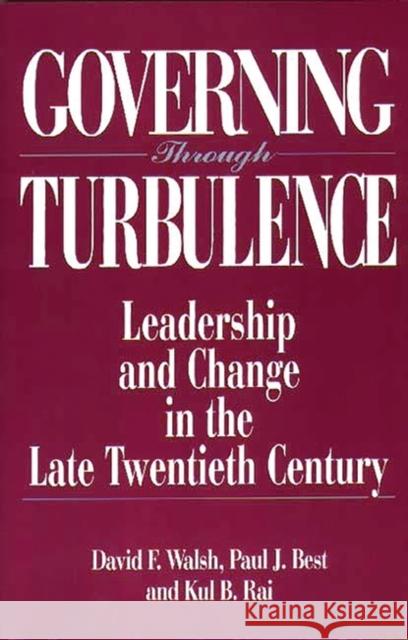Governing Through Turbulence: Leadership and Change in the Late Twentieth Century » książka
Governing Through Turbulence: Leadership and Change in the Late Twentieth Century
ISBN-13: 9780275951665 / Angielski / Twarda / 1995 / 264 str.
This important study examines aspects of political leadership and governance in the last decades of the 20th century. Driven by innovations in science and technology, turbulent change has impacted nearly every political system and created a political environment of extreme complexity and fluidity. In this environment, previously dominant leaders, ideas, and institutions have been disempowered and new leaders and ideas empowered. This work examines seven world leaders, members of the first generation of political elites to assume power in the fluid political environment of the late 20th century. Two were heads of advanced industrial countries: Margaret Thatcher of the United Kingdom and Helmut Kohl of Germany. Three were leaders of states which underwent the transition from communist to postcommunist regimes: Lech Walesa of Poland, Mikhail Gorbachev of the Soviet Union, and Boris Yeltsin of Russia. And two were leaders of important Third World states: Deng Xiaoping of China and Rajiv Gandhi of India. Each case study includes: (1) the political-economic context, (2) the operative elements of political turbulence in the domestic political environment, (3) a profile of the leader and his or her group, (4) the leader's political program, (5) strategies and means of achieving power, (6) the policy dimension, (7) the nature and scope of change, and (8) theories and interpretations of the leader and his or her political agenda. Through such analyses, the authors illustrate the scope, depth, and meaning of the most important recent political changes worldwide. The text will suit courses in international relations and comparative politics.











